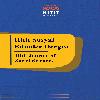Macıntyre’ın Modern Ahlak Eleştirisinde Seçimlerin Rasyonalitesi Sorunu: Kierkegaard Örneği
Bu çalışma, Alasdair MacIntyre’ın modern ahlak felsefesi eleştirisini Kierkegaard’ın ahlak felsefesi üzerinden okumaya çalışmaktadır. Bu eleştirinin merkezinde, genelde insan yaşamında, özelde ahlak alanındaki seçimlerin herhangi bir kritere dayanmıyor oluşu yatar. MacIntyre’a göre bu meseleyi en iyi örneklendiren modern filozofların en çarpıcısı Kierkegaard’dır. MacIntyre’ın söz konusu Kierkegaard eleştirisi zaman içinde kendini yenileyen ve güçlendiren bir eleştiridir ve bu yüzden tarihsel bir sırayla değerlendirilmelidir. Bu eleştirinin değişen dinamikleri çağdaş Kierkegaardçı filozofların dikkatini çekmiştir. Bu ilgi, Kierkegaard’ın ahlak felsefesini, MacIntyre’ın kritersizlik eleştirilerinden kurtarma ve Aristoteles’in ahlak felsefesine yaklaştırma çabası şeklinde tezahür etmiştir. MacIntyre, bu eleştirlerle canlı bir diyaloğa girerek yeniden cevaplar üretmiş ve mevcut eleştirisini daha güçlü bir şekilde inşa etmiştir.
Anahtar Kelimeler:
Kierkegaard, MacIntyre, Aristoteles, ahlaki seçimler, kritersizlik
The Problem of Rationality of Selected in the Modern Ethics Criticism of Macintyre: Kierkegaard Example
This study tries to understand Alasdair MacIntyre’s critique of modern morality with Kierkegaard’s moral philosophy. At the center of the critique there is an understanding that moral choices do not have any criteria. For MacIntyre, Kierkegaard is the most peculiar modern philosopher who exemplifies best this idea of critetionless. MacIntyre’s critique of Kierkegaard renews and strengthens itself in time. Hence it must be read chronologically. The varying dynamics of this critique draw attentions of Kierkegaardian philosophers. Their interesses present themselves as defending Kierkegaard against MacInrtre’s critique of criterionless and bringing him close to Aristotle’s moral philosophy. Having a vivid dialog with these Kierkegaardians, MacIntyre gives new answers and reformulates his previous critiques stronger than before.
Keywords:
Kierkegaard, MacIntyre, Aristotle, moral choices, criterionless,
___
- Davenport, John J. and Rudd, Anthony (ed.), Kierkegaard After MacIntyre, Chicago: Open Court Publishing Company, 2001.
- Kierkegaard, Soren, Kişiliğin Gelişiminde Etik Estetik Dengesi, çev. İbrahim Kapaklıkaya, İstanbul: Araf Yayınları, 2013.
- Kierkegaard, Soren, Concluding Unscientific Postscript, çev. David F. Swenson ve Walter Lowrie, Princeton: Princeton University Press, 1941.
- Kierkegaard, Soren, Kierkegaard‘s Journals and Papers, Vol. 1., translated by Howard V. and Edna H. Hong, Boomington: Indiana University Press, 1976.
- MacIntyre, Alasdair, Erdem Peşinde, çev. Muttalip Özcan, Ayrıntı Yayınları: İstanbul, 2001.
- MacIntyre, Alasdair, After Virtue, Bloomsbury: New York, 2011 (third edition).
- MacIntyre, Alasdair, “Existentialism”, A Critical History of Western Philosophy, ed. D .J . O’ Connor, London: Free Press of Glencoe, 1964, ss. 509-529.
- MacIntyre, Alasdair, “Existentialism”, Encyclopedia of Philosophy (Second Edition), ed. Donald M. Borchert, Detroit: Gale Publication, 2006, ss. 500-510.
- MacIntyre, Alasdair, Etiğin Kısa Tarihi, çev. H. Ünler ve S. Z. Hünler Paradigma Yayınları: İstanbul, 2001.
- MacIntyre, Alasdair, “Kierkegaard Soren Aabye”, Encyclopedia of Philosophy (Second Edition), ed. Donald M. Borchert, Detroit: Gale Publication, 2006, ss. 61-66.
- Rudd, Anthony, “Alasdair MacIntyre: A Continuing Conversation”, Kierkegaard’s Influence on Philosophy, Volume 11, Tome III: Anglophone Philosophy, ed. Jon Stewart, Ashgate Publishing, Surrey 2012, ss. 117-134.
- ISSN: 2757-6957
- Yayın Aralığı: Yılda 2 Sayı
- Başlangıç: 2020
- Yayıncı: Hitit Üniversitesi
Sayıdaki Diğer Makaleler
Kemalpaşazâde’nin Risâle fî’ş-Şahsi’l-İnsânî Adlı Eseri ve Osmanlıca Tercümeleri
Tarihi Süreç İçinde Cami ve Fonksiyonları Üzerine Bir Deneme
Kutsal Zaman, Algılanış Biçimi ve İbadet Hayatına Etkisi
Muammer CENGİL, Dila Baran TEKİN
Ceza İnfaz Kurumlarında Din Eğitimi
Din Görevlisi Adaylarının İletişim Becerisi Algılarının Çeşitli Değişkenler Açısından İncelenmesi
Kur’an-ı Kerim’de “Beyne’l-Yed”in ( » بَيْنَ اليَد « Anlamı
Macıntyre’ın Modern Ahlak Eleştirisinde Seçimlerin Rasyonalitesi Sorunu: Kierkegaard Örneği
